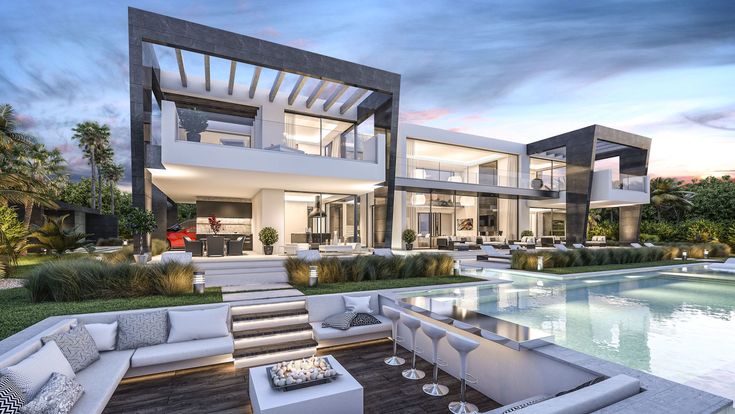In the ever-evolving world of real estate and design, luxury house architecture has emerged as the pinnacle of elegance, comfort, and functionality. These high-end homes are more than just structures; they are statements of lifestyle, creativity, and technological innovation. From sweeping glass facades to intricate interior layouts, the architecture of a luxury house reflects the perfect harmony between art and science.
What Defines Luxury House Architecture?
Luxury house architecture is not just about size or price—it’s about the thoughtful design, superior materials, and exclusive features that elevate a home beyond the ordinary. These homes often include custom layouts, high ceilings, expansive living spaces, and seamless integration with nature. Architectural excellence is visible in every corner—from the symmetry of the structure to the details in molding and finishing.
Luxury architecture also places a strong emphasis on personalization. Homeowners often work closely with renowned architects to create a design that reflects their personality, lifestyle, and values. Whether it’s a minimalist modern mansion or a sprawling Mediterranean estate, each design is tailored to meet the client’s vision.
The Role of Modern Design in Luxury Homes
Contemporary luxury house architecture leans heavily on modern design principles. Clean lines, open floor plans, and large windows dominate the aesthetic. These elements not only contribute to a sleek and sophisticated appearance but also enhance natural lighting and promote a sense of openness and calm.
Sustainability is another key feature. Eco-conscious luxury homes incorporate green technologies like solar panels, rainwater harvesting systems, and energy-efficient insulation. These smart, sustainable features offer long-term savings while reducing the home’s carbon footprint—making luxury living more responsible.
Key Features of Luxury House Architecture
- Grand Entrances and High Ceilings
A luxury home often begins making its statement at the entrance. Large doors, elegant foyers, and double-height ceilings create a powerful first impression. - Innovative Use of Space
Designers focus on both aesthetics and practicality. Open-concept kitchens, walk-in closets, home theaters, and wellness areas like spas or gyms are standard features in luxury homes. - Premium Materials
From imported Italian marble to custom hardwood floors and handcrafted cabinetry, the use of high-quality materials sets luxury homes apart. - Integration with Nature
Biophilic design is a growing trend in luxury architecture. Floor-to-ceiling windows, indoor gardens, and outdoor living areas connect homeowners with the surrounding landscape. - Smart Home Technology
State-of-the-art home automation systems control everything from lighting and security to climate and entertainment, offering unmatched convenience and security.
Global Inspirations in Luxury Home Design
Luxury house architecture takes inspiration from a range of global styles. Mediterranean villas, with their red-tile roofs and stucco walls, evoke warmth and romance. Japanese-inspired minimalist homes emphasize serenity and balance, while Scandinavian designs highlight functionality and simplicity.
In tropical climates, you’ll often find luxury homes designed with wide verandas, infinity pools, and open-air lounges to enhance indoor-outdoor living. In colder regions, modern chalets with large fireplaces, wooden beams, and panoramic windows offer a cozy, elegant retreat.
The Future of Luxury House Architecture
As technology and lifestyle preferences evolve, luxury house architecture is becoming more adaptive and innovative. The future points toward homes that are not only visually stunning but also self-sufficient and AI-integrated. Architects are experimenting with advanced materials like transparent solar panels and 3D-printed structures to push the boundaries of design and function.
Moreover, there’s a growing focus on wellness architecture—homes designed to promote mental and physical well-being through natural light, improved air quality, and calming aesthetics.
Conclusion
Luxury house architecture is an exciting field that continues to redefine how we live, relax, and connect with our environment. By combining high-end design, sustainability, and technology, these homes offer a lifestyle that’s as refined as it is comfortable. Whether you’re planning to build your dream home or simply appreciate beautiful architecture, there’s no denying the appeal and artistry behind luxury house design.

